Books by Tom Navon

An intellectual-political biography of Otto Heller, the most prominent and prolific communist the... more An intellectual-political biography of Otto Heller, the most prominent and prolific communist theoretician of the Jewish question.
This book explores the confrontation of radically assimilated Jews with the violent collapse of their envisioned integration into a cosmopolitan European society, which culminated during the Holocaust. This confrontation is examined through the biography of the German-speaking intellectual and prominent communist theoretician of the Jewish question Otto Heller (1897–1945), focusing on the tension between his Jewish origins and his universalistic political convictions. Radical Assimilation in the Face of the Holocaust traces the development of Hellerʼs position on the Jewish question in three phases: how he grew up to become a typical Central European "non-Jewish Jew" (1897–1931); how he became exceptional in that category by focusing his intellectual work on the Jewish question (1931–1939); and how he reacted to the persecution and murder of European Jewry as a member of the Resistance in occupied France and in Auschwitz (1939–1945). Breaking with the common portrayal of Heller as a self-hating Jew, Tom Navon argues instead that Heller came to lay the foundations for the groundbreaking recognition by communists of worldwide Jewish national solidarity.
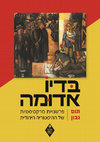
This book explores Marxist Jewish historiography, namely interpretations of the Jewish past that ... more This book explores Marxist Jewish historiography, namely interpretations of the Jewish past that drew inspiration from Karl Marx’s methodological approach to history. It brings together the diverse attempts to write Jewish history from a Marxist perspective, that were made by some twenty intellectuals from various ideological movements and countries, and in various languages, mainly during the first half of the twentieth century. By that, this book defines and describes a historiographical current, which was neglected in existing scholarship of Jewish historiography, while focusing on the following questions: Why did Marxist Jewish historiography emerge in the specific circumstances of its formation? How did its creators interpret Jewish history from a Marxist standpoint, and why?
This book analyses the common features of Marxist Jewish historiographical writings: the emphasis of the socio-economic factors in history and the negation of the uniqueness of Jewish history, namely the aspiration to explore it with a universal method and in a general context. The dividing lines between the various writers and sub-currents are also examined, through studying a series of controversies among Marxist Jewish historians: Was historical Jewry a nation or a class? Was the Jewish diaspora constituted of refugees from Palestine or through mass proselytization? Was antisemitism a feudal residue or a modern phenomenon? Were the Jews forerunners of modern capitalism or its victims?
This research suggests a socio-political explanation for the emergence of Marxist Jewish historiography by connecting it to the formation of a vast Jewish working-class in Eastern Europe around the turn of the twentieth century, and to its dispersion around the globe during the first half of the century. The decline of Marxist Jewish historiography in the post-war period is understood vis-á-vis the outcomes of the Holocaust as well as the political and sociological developments in the main Jewish centers in the Soviet Union, America, and Israel.
The main finding of this research is that Marxist Jewish Historiography was deeply connected to Jewish nationalism, and thus reflected a process of nationalization among Jews in labor movements, even in branches that ideologically opposed Jewish nationalism. This evolution is explained through the ever-worsening implications of the Jewish question over the first half of the century.
Open Access Published Articles by Tom Navon

Jewish History, 2021
Otto Heller, the Austrian-Czech-German communist intellectual of Jewish origin, was known almost ... more Otto Heller, the Austrian-Czech-German communist intellectual of Jewish origin, was known almost exclusively for his 1931 orthodox Marxist book, Der Untergang des Judentums (The Decline of Judaism). A recently rediscovered unpublished manuscript of a second book on the "Jewish Question," written by Heller in 1939 and entitled Der Jude wird verbrannt (The Jew Is to Be Burned), sheds new light on the man and his work. Furthermore, the unknown manuscript, as one of the longest communist accounts of the Jewish Question and antisemitism from that period, reveals a substantial turning point in the history of the communist discussion on those issues. Existing scholarship has identified novel political stances among communists, such as recognizing the Jews as a nation and as unique victims of Nazism only from 1942 onwards. Although Heller did not express such far-reaching political views in this lost manuscript, he did introduce an original theoretical approach to the Jewish Question. This article analyzes Heller's theoretical innovations as early intellectual precursors of later dramatic developments in the communist political discourse.
Published Articles by Tom Navon

Chidushim: A Journal of the Leo Baeck Institute, 2020
The year 2018 marked the bicentenary of both Wissenschaft des Judentums and Karl Marx’s birth. Th... more The year 2018 marked the bicentenary of both Wissenschaft des Judentums and Karl Marx’s birth. The two intellectual paths that subsequently developed from these events – Jewish historiography and Marxism – met only in the early twentieth century, with the emergence of Marxist Jewish historiography. This trend was developed by three different groups of intellectuals: Marxist Zionists from the dawn of the century onward; Soviet Jewish historians during the 1920s; and Communist Jewish theoreticians in the West during the 1930s. This article examines Marxist Jewish historiography through the lens of its critique of previous and contemporary historiographical currents: Wissenschaft des Judentums that evolved in Germany during the nineteenth century; Dubnow’s national-diasporic historiography; and Zionist historiography.
Marxist Jewish historiography focused its criticism of those currents on the role that they attributed to ideas in explaining Jewish history, and sought to replace them with materialistic factors. Moreover, the Marxist historians disputed the presumption of the uniqueness of Jewish history within general history, and questioned the concept of the continuity of Jewish history over time and space. Marxist Jewish historians explained the histories of their predecessors and rivals in terms of political objectives and class interests: Wissenschaft des Judentums, they claimed, expressed the aspiration for assimilation on the part of the German-Jewish bourgeoise; the national-diasporic historiography expressed the aspiration of the East European Jewish bourgeoisie for political autonomy; and Zionist historiography expressed the existential crisis in which the Jewish petit bourgeoisie had been caught up throughout Europe after the First World War. Marxist Jewish historiography itself reflected the emergence of a Jewish working-class in Eastern Europe and its global dispersion, while articulating various competing political trends within this class. Thus, this article defines Marxist Jewish historiography as a distinct current within the history of Jewish historiography, and compares it with other major currents.

News from Auschwitz: The International Undergroundʼs Secret Reports and the Jewish Holocaust
Yad Vashem Studies, 51, 1, 2023
Between February and October 1944 thirteen 'Periodical Reports' on Auschwitz were composed, based... more Between February and October 1944 thirteen 'Periodical Reports' on Auschwitz were composed, based on information that was gathered and smuggled out of the camp by the international underground of prisoners. Aimed to inform the world of the crimes perpetrated in Auschwitz, the reports deal with various groups of victims, among them left-wing political prisoners, Polish prisoners, Soviet POWs, and the Jewish victims of "the final solution". This article examines the attitude of the reports' authors to the extermination of Jews, between particularist and universalist interpretations. Being a collective composition, the intricate agendas represented in the reports are differentiated through identification of the authors and analysis of the process of writing and editing. Even though most of the authors were communists of Jewish descent, who had turned their backs on their Jewish origins, the reports did not refrain from distinguishing the Jews among the victims of Auschwitz.

Marxism and Zionism
Routledge Hnadbook on Zionism, May 8, 2024
In contrast to the common view of Marxism and Zionism as being mutually exclusive, this chapter m... more In contrast to the common view of Marxism and Zionism as being mutually exclusive, this chapter maintains that they intertwined in a diverse fashion. Based on differentiation between Marxist theory and Marxism as a mass ideology and on the acknowledgement of multiple versions of each, four different types of historical relations are discussed: (1) The early intersections of Marxism and Jewish nationalism (1844–1904) are distinguished through common theoretical roots; (2) Pre–World War II orthodox Marxism (1889–1940) is characterized by ideological negation of Zionism; (3) The simultaneous emergence of Zionist-Marxism (1905–1956) demonstrates the possibility of merging the two; (4) The attempts to reconcile Marxism and Zionism, made by orthodox Marxists during the Holocaust, were overpowered by a Soviet aggressive anti-Zionist ideology (1939–1953). On the one hand, Marxist theories provided a fruitful analytical framework for Zionist praxis. On the other hand, Marxism was abused as mass ideology, which, in extremity, converged with anti-Semitism.

Handelsvolk : Marx's View of the Jews as a Trading-People and its Implications
Critique: Journal of Socialist Theory, 2023
This article analyses the usage of the German term Handelsvolk (trading-people) by Karl Marx and ... more This article analyses the usage of the German term Handelsvolk (trading-people) by Karl Marx and other Marxists in relation to Jewish history. The question is: what can we learn from the different interpretations of this term on the evolution of the relationship between Marxism and the so-called Jewish question? This exploration sheds new light on shifts in the definition of the Jews, both by Marx in the mid-19th century and by Jewish Marxists of various political parties in the mid-20th century. These shifts reflect changing social and political circumstances. In Marx's case, it was mainly his own migration that exposed him to different social environments and thus influenced his theoretical understanding. In the case of the Jewish Marxists, active during the period of the Third Reich, the term served as a means to qualify Jewish nationalism vis-à-vis the persecution and destruction of European Jewry.

At the crossroads between Communism and Jewish nationalism: Ber Mark as historian of premodern Jewish society
East European Jewish Affairs, Sep 1, 2022
Ber Mark, the longstanding director of ŻIH (1949–1966), is generally considered a regime historia... more Ber Mark, the longstanding director of ŻIH (1949–1966), is generally considered a regime historian who adhered to the Communist Party line in his histories of Jewish resistance during the Holocaust, most of which were significantly distorted by Communist bias. In 1957, however, he published a book dealing with premodern Jewish history. Di geshikhte fun yidn in poyln (bizn sof fun XV y[or]h[undert]) (The History of Jews in Poland [until the End of the Fifteenth Century]) represents an attempt by Mark to reconcile an orthodox Marxist interpretation of Jewish history with a Zionist Marxist construction, with its nod to Jewish nationalism. In this book, then, Mark had ultimately reached a crossroads in his writing of Jewish history. With its incorporation of a nationalist understanding of Jewish history in coexistence with a Communist one, Di geshikhte fun yidn in poyln marks the end of pure Marxist historiography in Yiddish.
Papers on the Holocaust by Tom Navon
Mimeo. Blog der Doktorandinnen und Doktoranden am Dubnow-Institut, 2023

The memory of the uprising became controversial almost immediately after its repression by German... more The memory of the uprising became controversial almost immediately after its repression by German forces. In 1948, Nathan Rapoport’s memorial was inaugurated on the ruins of the Warsaw Ghetto to commemorate the uprising’s fifth anniversary. When the West German Chancellor Willy Brandt knelt before that monument during his state visit to Poland in December 1970, his gesture aroused agitated debates in Germany and beyond. The legacy of the uprising became a matter of dispute, among Jews and non-Jews alike: between rival political, social, and national groups and in different languages and cultural contexts.
With the greater attention paid to the Holocaust, the memory of the uprising gained a new dynamic. In Israel, alongside the political dispute regarding the role of the right-wing Jewish Military Union in the uprising, a controversy arose over the meaning of heroism, between struggle for survival and active resistance. In Poland, Marek Edelman’s involvement in the Solidarity movement marked the entanglement of the commemorative history of the uprising with contemporary Polish history. Jan Błoński’s 1987 article, »Poor Poles Look at the Ghetto« triggered an emotional debate regarding the role of the Polish population facing the Holocaust, which continues in different forms until today.
This conference will bring together the historical event and its memory. The contradictions relating to the memorial history of the Warsaw Ghetto Uprising were born from the complexity of the event itself. Memorial icons will form the epistemological point of departure for the conference. Their emergence, impact, and transformations in various layers of time will be peeled back. Larger questions of universalism and particularism, nationalization and acculturation, experience and memory will be invoked, concerning the destruction of anthropological certitudes, the transformation of Jewish self-understanding, and the character of the ghetto as a point of transit between life and death.
A German version of this interview was published in TaZ, 27.4.2022
A lecture given at the event on the occasion of the 81st anniversary of the meeting at Wannsee on... more A lecture given at the event on the occasion of the 81st anniversary of the meeting at Wannsee on 20 January 1942: Jewish Resistance and Self-Assertion in Response to the Shoah
Berlin, 19 January 2023
Papers on Marxist Jewish historiography by Tom Navon
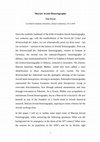
The first half of the twentieth century saw a trend in Jewish historiography yet to be explored: ... more The first half of the twentieth century saw a trend in Jewish historiography yet to be explored: Marxist Jewish historiography. This intellectual phenomenon emerged from the various Jewish workers movements, and accordingly – composed of different, and sometimes opposed, sub-currents. Common to all these was their critique of former and contemporary trends in Jewish historiography (from Graetz to Dubnow) and their attempt to reinterpret Jewish history, as a whole, in a materialistic manner. This was a historiographic corpus written mostly in Yiddish.
Marxist Jewish historians held on to Marx' scant and laconic comments on Jewish history, while extending and correcting them, as well as relying on other Marxist theoreticians such as Kautsky. They had to take a stand in the Weber-Sombart controversy over the economic function of Jews in history. As a result, new methods for Jewish history were developed.
This lecture will unfold the interrelation between theoretical and political aspects in different trends within Marxist Jewish historiography: Zionist Marxist historiography (Jacob Lestschinsky, Isaac Schipper, Emanuel Ringelblum and Raphael Mahler), Communist Jewish historiography (Otto Heller and Moyshe Katz) and Trotskyist Jewish historiography (Abram Leon). That while bearing in mind the weakness of Marxist Jewish historiography in arenas where allegedly it should have thrived: The Soviet Union and the Bund movement in Poland.
Finally, shall be explained the context for the apogee of this discourse in the 1930s, as well as its decline around the mid-twentieth century.
Marx200: Politics – Theory – Socialism, Rosa Luxemburg Stiftung Congress in Berlin, 4.5.2018
Presentation in Dubnow Institute, Leipzig, 10.7.2019
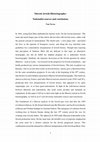
The first half of the twentieth century saw a trend in Jewish historiography yet to be explored: ... more The first half of the twentieth century saw a trend in Jewish historiography yet to be explored: Marxist Jewish historiography. This intellectual phenomenon emerged from the various Jewish and general workers movements, and accordingly – composed of different, and sometimes opposed, sub-currents. This paper will unfold the interrelation between theoretical and political aspects in different trends within Marxist Jewish historiography – Marxist Zionists (Ber Borochov, Jacob Lestschinsky, Isaac Schipper, Emanuel Ringelblum, Raphael Mahler), Jewish Communists (Otto Heller and Moyshe Katz) and Trotskyists (Abram Leon) – while answering the following questions: What was the background for the emergence of Marxist Jewish Historiography at the dawn of the 20th century? What were the reasons for its popularity in the 1930’s and for its decline right afterwards? Why was it dominated for a long time by Zionist intellectuals? Why the Jewish Bund did not develop its own interpretation of Jewish history? Why was Soviet Jewish historiography only a short-lived phenomenon? And why, when communist movements have joined the Jewish historical discourse, only in the 1930's, they adopted a hesitant or even mild sympathetic approach to Jewish nationalism?
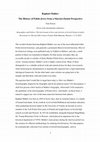
Raphael Mahler (1899 Nowy Sącz-1977 Tel Aviv) was one of the most influential leftist Polish Jewi... more Raphael Mahler (1899 Nowy Sącz-1977 Tel Aviv) was one of the most influential leftist Polish Jewish historians. After graduating doctoral studies in the University of Vienna, he became a prominent member in the 'Left Poalei-Zion' party in Poland and taught history in Jewish high schools in Łódź and Warsaw. In 1923 he established, alongside Emanuel Ringelblum, the 'Young Historians Circle' in Warsaw, which played an important role in the historical department of YIVO. Mahler's main project during the interwar period was the creation of a Marxist methodology for studying Jewish history. For that purpose, he systematically criticized rival currents in Jewish historiography, such as Wissenschaft des Judentums, Dubnow's and Baron's historiographical projects, (non-Marxist-) Zionist historiography, and (non-Zionist-) Marxist historiography. After leaving Poland in 1937, first to the USA and later to Israel, he dedicated the rest of his life to applying his methodology in a thorough research of Jewish history, mainly (though not only) in modern times. Naturally, he paid much attention to the history of Polish Jews. Inter alia, he provided a class interpretation for the phenomena of Haskala and Hasidism in Poland. How was his historiography influenced by his political stance and vice versa?
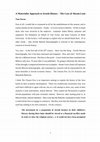
Abraham Leon, a Jewish activist and theorist of Polish descent, who joined the Trotskyist movemen... more Abraham Leon, a Jewish activist and theorist of Polish descent, who joined the Trotskyist movement in Belgium, wrote his only book aged 24 under Nazi occupation. Aged 26, he was murdered in Auschwitz. Despite his young age and the rough conditions under which he conducted research, Leon, who displayed an unusual scholarly expertise, is considered as the historian who presented the most complete and consistent effort in writing a Marxist synthesis of Jewish history.
In the framework of this lecture I seek to elicit methodological premises for a Marxist historiography of Jewish history. Leon sought to provide answers to the question of Jewish longevity during exile. He opposed contemporaneous Jewish historiography, (that he termed "idealist"), which addressed the question in terms of religious faith or national devotion. Alternatively, Leon combined Marx and Weber's approaches to Jewish history, coined the term "people-class" and formulated the Rule of Assimilation.
Leon attributed the Jewish Problem, which reached its catastrophic climax during his lifetime, to the crises of capitalism. He interpreted Zionism as the reaction of Jewish petite bourgeoisie to the dissolution of feudal economy. When Leon's book was published after the war, it did not garner special interest. The emergence of the New Left in the late 1960s breathe new life into the theory, as Leon's book was republished drawing criticism from intellectuals, including that of the historian and orientalist Maxime Rodinson. Leon's theory remains the subject of scholarly debates between those who consider it schematic and vulgar and those who regard it as fruitful and brilliant.
Papers in Israeli political-economic history by Tom Navon







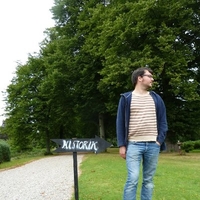



Uploads
Books by Tom Navon
This book explores the confrontation of radically assimilated Jews with the violent collapse of their envisioned integration into a cosmopolitan European society, which culminated during the Holocaust. This confrontation is examined through the biography of the German-speaking intellectual and prominent communist theoretician of the Jewish question Otto Heller (1897–1945), focusing on the tension between his Jewish origins and his universalistic political convictions. Radical Assimilation in the Face of the Holocaust traces the development of Hellerʼs position on the Jewish question in three phases: how he grew up to become a typical Central European "non-Jewish Jew" (1897–1931); how he became exceptional in that category by focusing his intellectual work on the Jewish question (1931–1939); and how he reacted to the persecution and murder of European Jewry as a member of the Resistance in occupied France and in Auschwitz (1939–1945). Breaking with the common portrayal of Heller as a self-hating Jew, Tom Navon argues instead that Heller came to lay the foundations for the groundbreaking recognition by communists of worldwide Jewish national solidarity.
This book analyses the common features of Marxist Jewish historiographical writings: the emphasis of the socio-economic factors in history and the negation of the uniqueness of Jewish history, namely the aspiration to explore it with a universal method and in a general context. The dividing lines between the various writers and sub-currents are also examined, through studying a series of controversies among Marxist Jewish historians: Was historical Jewry a nation or a class? Was the Jewish diaspora constituted of refugees from Palestine or through mass proselytization? Was antisemitism a feudal residue or a modern phenomenon? Were the Jews forerunners of modern capitalism or its victims?
This research suggests a socio-political explanation for the emergence of Marxist Jewish historiography by connecting it to the formation of a vast Jewish working-class in Eastern Europe around the turn of the twentieth century, and to its dispersion around the globe during the first half of the century. The decline of Marxist Jewish historiography in the post-war period is understood vis-á-vis the outcomes of the Holocaust as well as the political and sociological developments in the main Jewish centers in the Soviet Union, America, and Israel.
The main finding of this research is that Marxist Jewish Historiography was deeply connected to Jewish nationalism, and thus reflected a process of nationalization among Jews in labor movements, even in branches that ideologically opposed Jewish nationalism. This evolution is explained through the ever-worsening implications of the Jewish question over the first half of the century.
Open Access Published Articles by Tom Navon
Published Articles by Tom Navon
Marxist Jewish historiography focused its criticism of those currents on the role that they attributed to ideas in explaining Jewish history, and sought to replace them with materialistic factors. Moreover, the Marxist historians disputed the presumption of the uniqueness of Jewish history within general history, and questioned the concept of the continuity of Jewish history over time and space. Marxist Jewish historians explained the histories of their predecessors and rivals in terms of political objectives and class interests: Wissenschaft des Judentums, they claimed, expressed the aspiration for assimilation on the part of the German-Jewish bourgeoise; the national-diasporic historiography expressed the aspiration of the East European Jewish bourgeoisie for political autonomy; and Zionist historiography expressed the existential crisis in which the Jewish petit bourgeoisie had been caught up throughout Europe after the First World War. Marxist Jewish historiography itself reflected the emergence of a Jewish working-class in Eastern Europe and its global dispersion, while articulating various competing political trends within this class. Thus, this article defines Marxist Jewish historiography as a distinct current within the history of Jewish historiography, and compares it with other major currents.
Papers on the Holocaust by Tom Navon
With the greater attention paid to the Holocaust, the memory of the uprising gained a new dynamic. In Israel, alongside the political dispute regarding the role of the right-wing Jewish Military Union in the uprising, a controversy arose over the meaning of heroism, between struggle for survival and active resistance. In Poland, Marek Edelman’s involvement in the Solidarity movement marked the entanglement of the commemorative history of the uprising with contemporary Polish history. Jan Błoński’s 1987 article, »Poor Poles Look at the Ghetto« triggered an emotional debate regarding the role of the Polish population facing the Holocaust, which continues in different forms until today.
This conference will bring together the historical event and its memory. The contradictions relating to the memorial history of the Warsaw Ghetto Uprising were born from the complexity of the event itself. Memorial icons will form the epistemological point of departure for the conference. Their emergence, impact, and transformations in various layers of time will be peeled back. Larger questions of universalism and particularism, nationalization and acculturation, experience and memory will be invoked, concerning the destruction of anthropological certitudes, the transformation of Jewish self-understanding, and the character of the ghetto as a point of transit between life and death.
Berlin, 19 January 2023
Papers on Marxist Jewish historiography by Tom Navon
Marxist Jewish historians held on to Marx' scant and laconic comments on Jewish history, while extending and correcting them, as well as relying on other Marxist theoreticians such as Kautsky. They had to take a stand in the Weber-Sombart controversy over the economic function of Jews in history. As a result, new methods for Jewish history were developed.
This lecture will unfold the interrelation between theoretical and political aspects in different trends within Marxist Jewish historiography: Zionist Marxist historiography (Jacob Lestschinsky, Isaac Schipper, Emanuel Ringelblum and Raphael Mahler), Communist Jewish historiography (Otto Heller and Moyshe Katz) and Trotskyist Jewish historiography (Abram Leon). That while bearing in mind the weakness of Marxist Jewish historiography in arenas where allegedly it should have thrived: The Soviet Union and the Bund movement in Poland.
Finally, shall be explained the context for the apogee of this discourse in the 1930s, as well as its decline around the mid-twentieth century.
In the framework of this lecture I seek to elicit methodological premises for a Marxist historiography of Jewish history. Leon sought to provide answers to the question of Jewish longevity during exile. He opposed contemporaneous Jewish historiography, (that he termed "idealist"), which addressed the question in terms of religious faith or national devotion. Alternatively, Leon combined Marx and Weber's approaches to Jewish history, coined the term "people-class" and formulated the Rule of Assimilation.
Leon attributed the Jewish Problem, which reached its catastrophic climax during his lifetime, to the crises of capitalism. He interpreted Zionism as the reaction of Jewish petite bourgeoisie to the dissolution of feudal economy. When Leon's book was published after the war, it did not garner special interest. The emergence of the New Left in the late 1960s breathe new life into the theory, as Leon's book was republished drawing criticism from intellectuals, including that of the historian and orientalist Maxime Rodinson. Leon's theory remains the subject of scholarly debates between those who consider it schematic and vulgar and those who regard it as fruitful and brilliant.
Papers in Israeli political-economic history by Tom Navon
This book explores the confrontation of radically assimilated Jews with the violent collapse of their envisioned integration into a cosmopolitan European society, which culminated during the Holocaust. This confrontation is examined through the biography of the German-speaking intellectual and prominent communist theoretician of the Jewish question Otto Heller (1897–1945), focusing on the tension between his Jewish origins and his universalistic political convictions. Radical Assimilation in the Face of the Holocaust traces the development of Hellerʼs position on the Jewish question in three phases: how he grew up to become a typical Central European "non-Jewish Jew" (1897–1931); how he became exceptional in that category by focusing his intellectual work on the Jewish question (1931–1939); and how he reacted to the persecution and murder of European Jewry as a member of the Resistance in occupied France and in Auschwitz (1939–1945). Breaking with the common portrayal of Heller as a self-hating Jew, Tom Navon argues instead that Heller came to lay the foundations for the groundbreaking recognition by communists of worldwide Jewish national solidarity.
This book analyses the common features of Marxist Jewish historiographical writings: the emphasis of the socio-economic factors in history and the negation of the uniqueness of Jewish history, namely the aspiration to explore it with a universal method and in a general context. The dividing lines between the various writers and sub-currents are also examined, through studying a series of controversies among Marxist Jewish historians: Was historical Jewry a nation or a class? Was the Jewish diaspora constituted of refugees from Palestine or through mass proselytization? Was antisemitism a feudal residue or a modern phenomenon? Were the Jews forerunners of modern capitalism or its victims?
This research suggests a socio-political explanation for the emergence of Marxist Jewish historiography by connecting it to the formation of a vast Jewish working-class in Eastern Europe around the turn of the twentieth century, and to its dispersion around the globe during the first half of the century. The decline of Marxist Jewish historiography in the post-war period is understood vis-á-vis the outcomes of the Holocaust as well as the political and sociological developments in the main Jewish centers in the Soviet Union, America, and Israel.
The main finding of this research is that Marxist Jewish Historiography was deeply connected to Jewish nationalism, and thus reflected a process of nationalization among Jews in labor movements, even in branches that ideologically opposed Jewish nationalism. This evolution is explained through the ever-worsening implications of the Jewish question over the first half of the century.
Marxist Jewish historiography focused its criticism of those currents on the role that they attributed to ideas in explaining Jewish history, and sought to replace them with materialistic factors. Moreover, the Marxist historians disputed the presumption of the uniqueness of Jewish history within general history, and questioned the concept of the continuity of Jewish history over time and space. Marxist Jewish historians explained the histories of their predecessors and rivals in terms of political objectives and class interests: Wissenschaft des Judentums, they claimed, expressed the aspiration for assimilation on the part of the German-Jewish bourgeoise; the national-diasporic historiography expressed the aspiration of the East European Jewish bourgeoisie for political autonomy; and Zionist historiography expressed the existential crisis in which the Jewish petit bourgeoisie had been caught up throughout Europe after the First World War. Marxist Jewish historiography itself reflected the emergence of a Jewish working-class in Eastern Europe and its global dispersion, while articulating various competing political trends within this class. Thus, this article defines Marxist Jewish historiography as a distinct current within the history of Jewish historiography, and compares it with other major currents.
With the greater attention paid to the Holocaust, the memory of the uprising gained a new dynamic. In Israel, alongside the political dispute regarding the role of the right-wing Jewish Military Union in the uprising, a controversy arose over the meaning of heroism, between struggle for survival and active resistance. In Poland, Marek Edelman’s involvement in the Solidarity movement marked the entanglement of the commemorative history of the uprising with contemporary Polish history. Jan Błoński’s 1987 article, »Poor Poles Look at the Ghetto« triggered an emotional debate regarding the role of the Polish population facing the Holocaust, which continues in different forms until today.
This conference will bring together the historical event and its memory. The contradictions relating to the memorial history of the Warsaw Ghetto Uprising were born from the complexity of the event itself. Memorial icons will form the epistemological point of departure for the conference. Their emergence, impact, and transformations in various layers of time will be peeled back. Larger questions of universalism and particularism, nationalization and acculturation, experience and memory will be invoked, concerning the destruction of anthropological certitudes, the transformation of Jewish self-understanding, and the character of the ghetto as a point of transit between life and death.
Berlin, 19 January 2023
Marxist Jewish historians held on to Marx' scant and laconic comments on Jewish history, while extending and correcting them, as well as relying on other Marxist theoreticians such as Kautsky. They had to take a stand in the Weber-Sombart controversy over the economic function of Jews in history. As a result, new methods for Jewish history were developed.
This lecture will unfold the interrelation between theoretical and political aspects in different trends within Marxist Jewish historiography: Zionist Marxist historiography (Jacob Lestschinsky, Isaac Schipper, Emanuel Ringelblum and Raphael Mahler), Communist Jewish historiography (Otto Heller and Moyshe Katz) and Trotskyist Jewish historiography (Abram Leon). That while bearing in mind the weakness of Marxist Jewish historiography in arenas where allegedly it should have thrived: The Soviet Union and the Bund movement in Poland.
Finally, shall be explained the context for the apogee of this discourse in the 1930s, as well as its decline around the mid-twentieth century.
In the framework of this lecture I seek to elicit methodological premises for a Marxist historiography of Jewish history. Leon sought to provide answers to the question of Jewish longevity during exile. He opposed contemporaneous Jewish historiography, (that he termed "idealist"), which addressed the question in terms of religious faith or national devotion. Alternatively, Leon combined Marx and Weber's approaches to Jewish history, coined the term "people-class" and formulated the Rule of Assimilation.
Leon attributed the Jewish Problem, which reached its catastrophic climax during his lifetime, to the crises of capitalism. He interpreted Zionism as the reaction of Jewish petite bourgeoisie to the dissolution of feudal economy. When Leon's book was published after the war, it did not garner special interest. The emergence of the New Left in the late 1960s breathe new life into the theory, as Leon's book was republished drawing criticism from intellectuals, including that of the historian and orientalist Maxime Rodinson. Leon's theory remains the subject of scholarly debates between those who consider it schematic and vulgar and those who regard it as fruitful and brilliant.
This raises the question: what enabled the close comradeship in arms between these formerly bitter opponents? A common answer is that in the face of a Nazi policy dedicated to the extermination of the Jews, political differences lost their meaning. This explanation, however, leaves other questions open: why was a similar alliance not forged with the Zionist Right, the Revisionists, who formed their own separate Jewish Military Union? Why were political differences still visible within the Jewish Fighting Organization even during the uprising until the very end?
The Warsaw Ghetto Uprising was not a deviation from modern Jewish politics, but rather a continuation of it. At the same time, it was also a unique expression of Jewish politics. In this lecture Dr. Tom Navon will outline and explain this duality while telling the story of the Warsaw Ghetto Uprising as a grassroots socialist revolt.